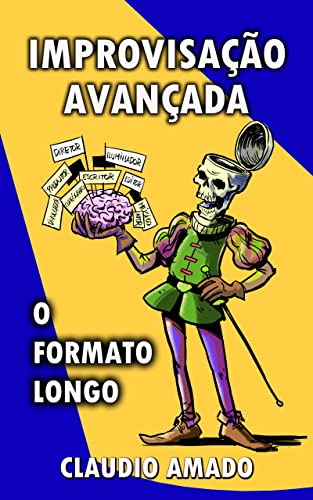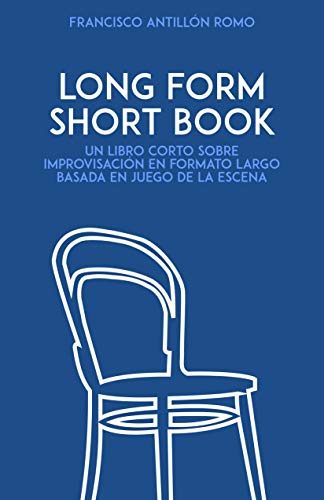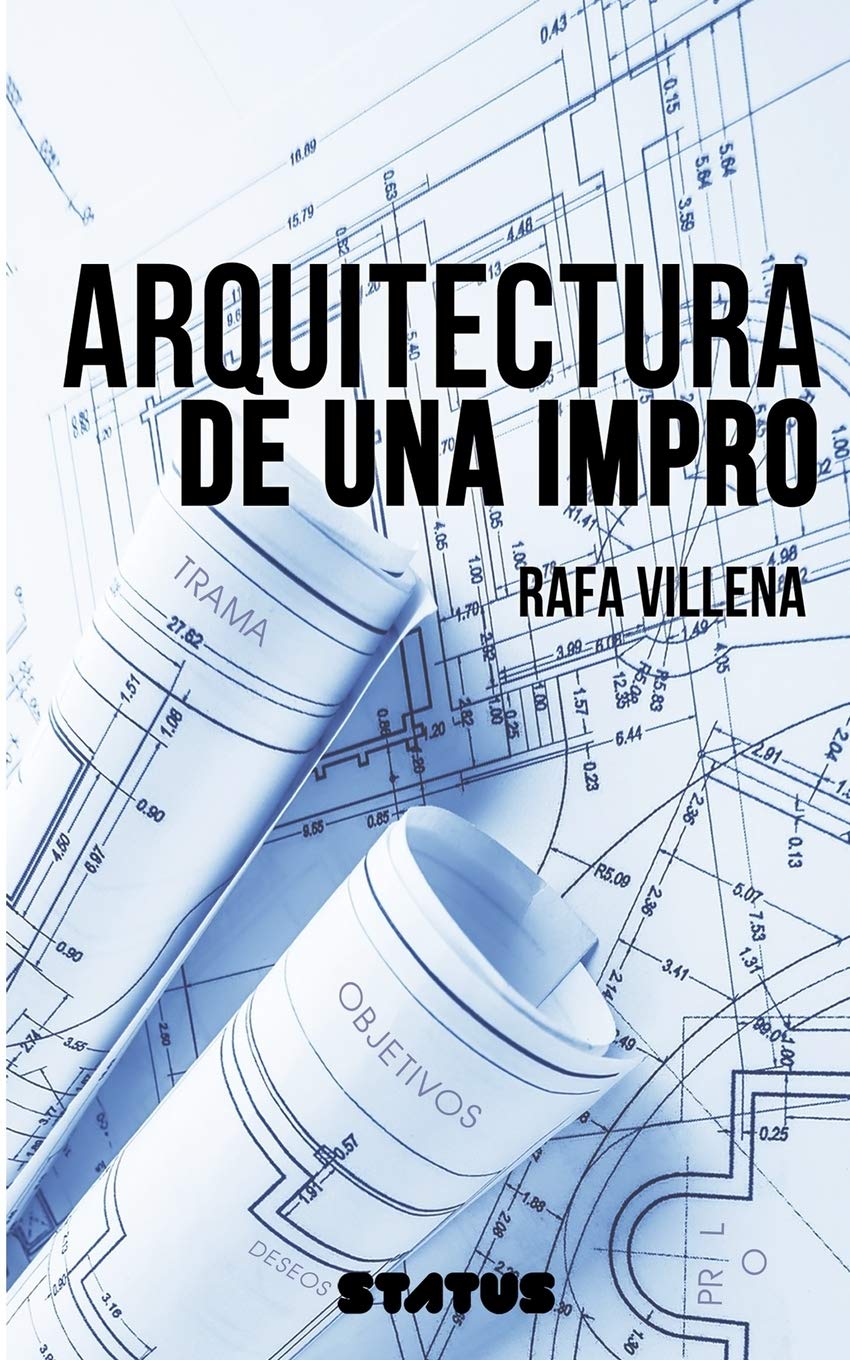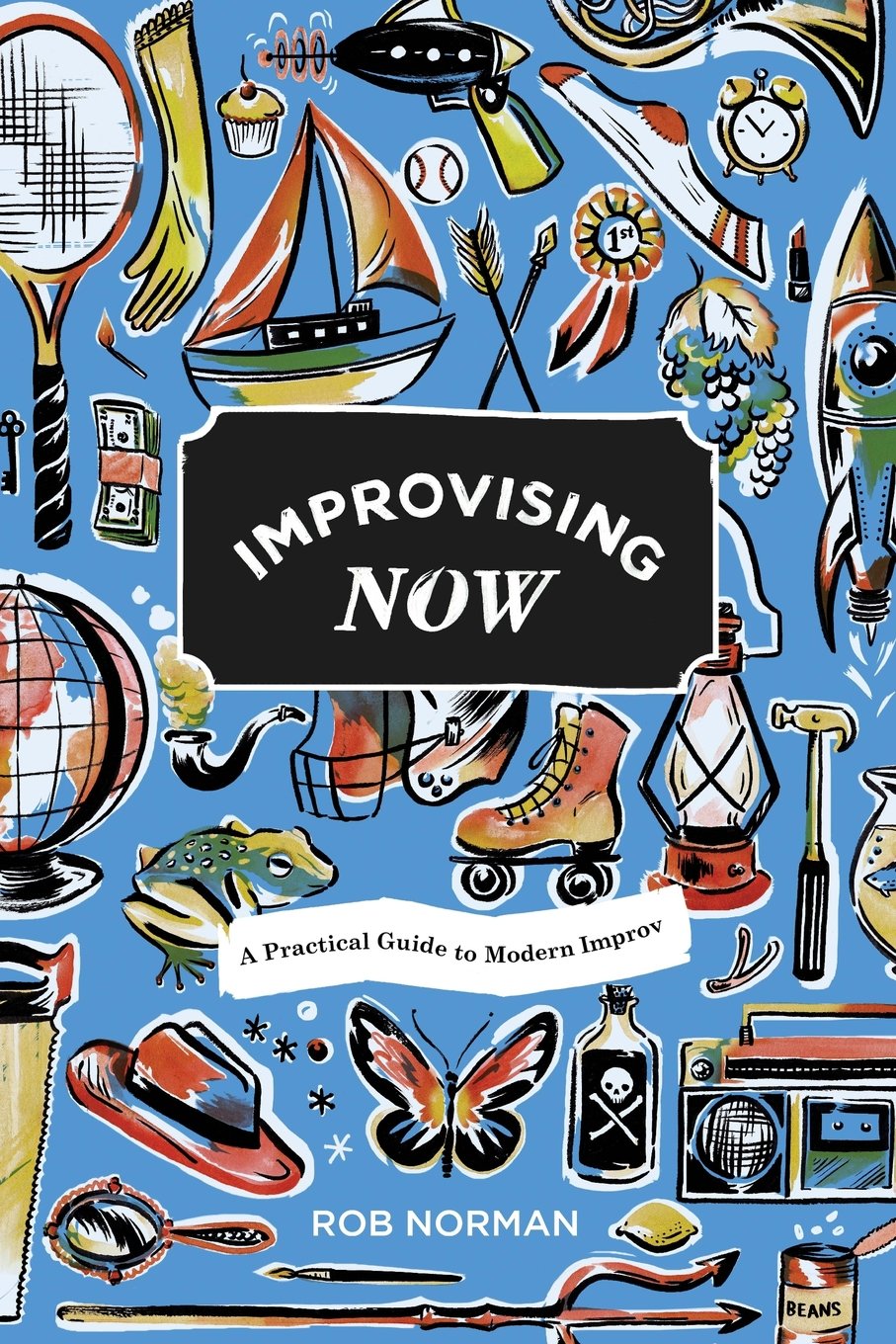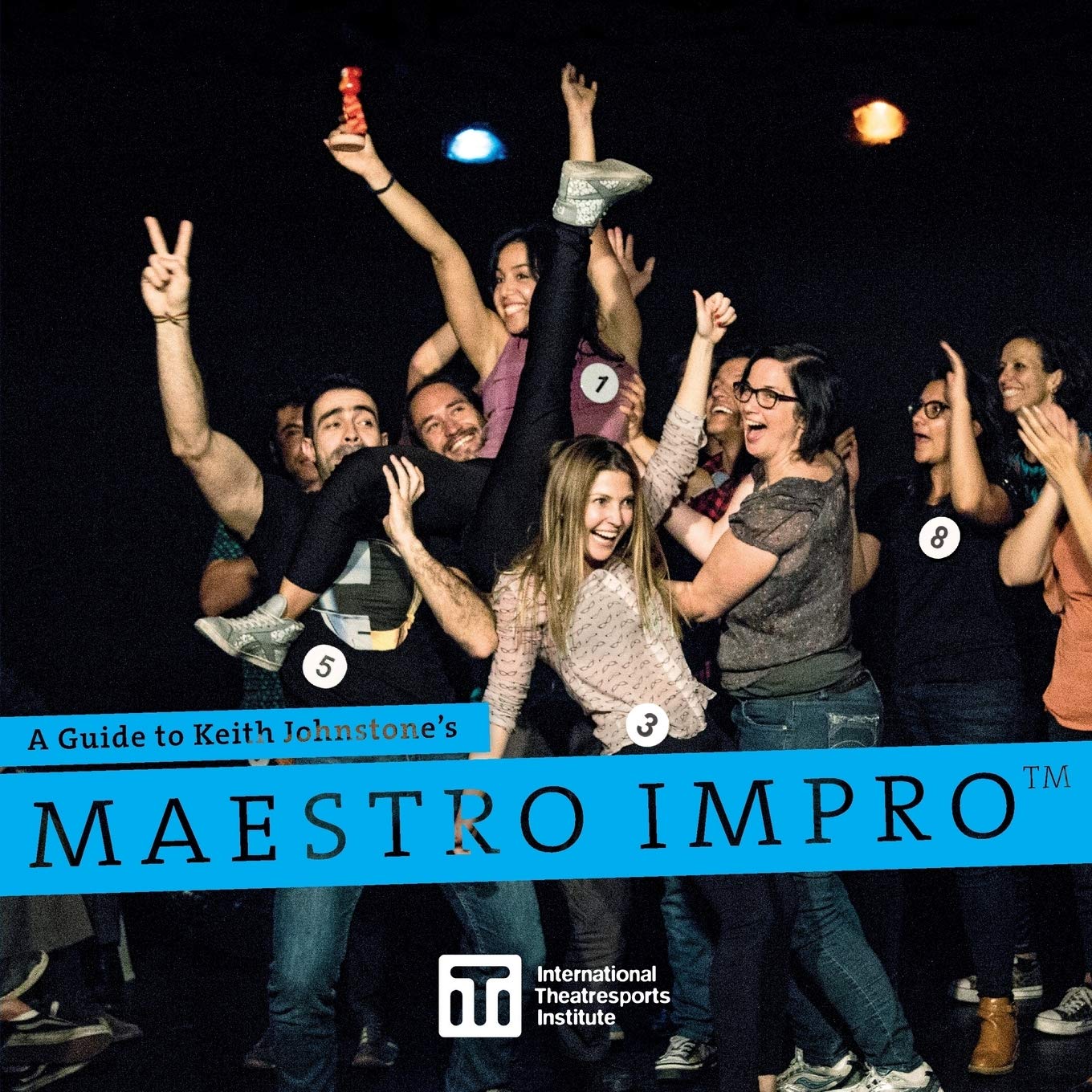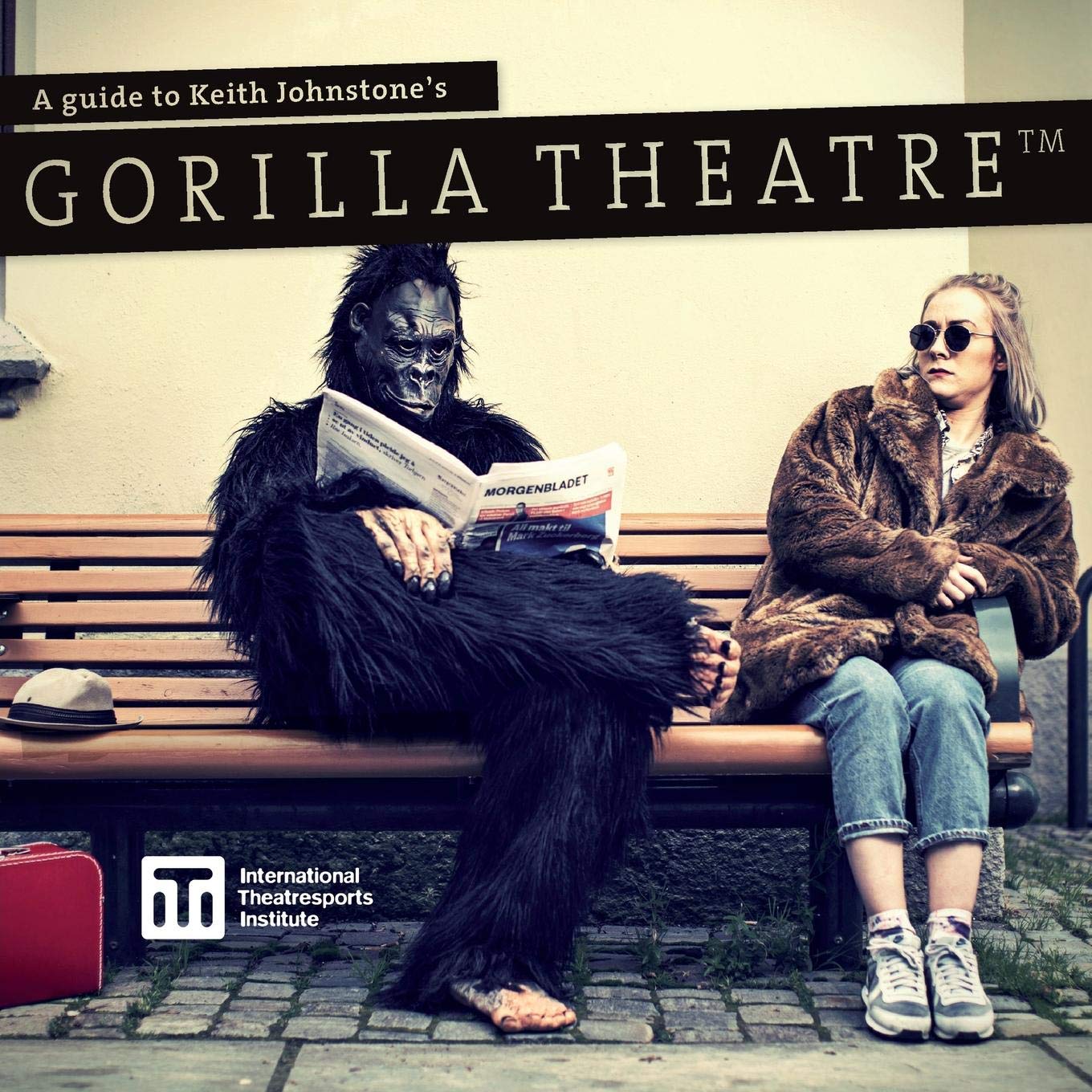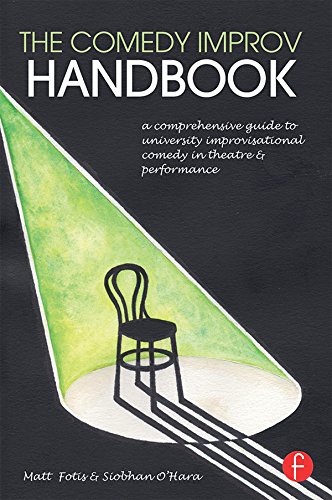Have you ever seen a HAROLD in your life? Improv theater, called Impro, Improv or Improv Comedy, is usually known for improvisation games. Television shows like Who’s Line is you anyway? popularized improvisation games on the Internet. The entire Improv methodology was developed through improvised games. All improvisers learn to improvise through them. Improvised games are the ABC of improvisation but… what about the rest of the alphabet? In 1955, in California, members of the group The Committee decided to put on a different improvisational show that night. Instead of a theatrical show made up of improvisation games as they normally did, they decided to try a new way of improvising: with just one word from the audience as an initial suggestion, they would improvise the entire show straight without stopping until the end. After the performance, in the car, returning home, the group’s director, called Del Close, asked what they would name that different type of improvisation and one of the members simply replied: “Harold!”. Long form improvisation, also called slow comedy, was born there. Claudio Amado is from Teatro do Nada, one of the precursor groups of Improv in Brazil, founded in 2004. In 2009, Claudio Amado debuted…
Long form
Long-form improv is based on the theatrical creation of complete shows related to theatrical works, but based on different improvised techniques.
Theatrical Improvisation: Short Form, Long Form, and Sketch-Based Improv Theatrical Improvisation provides an in-depth analysis of short form, long form, and sketch-based improv–tracing the development of each form and the principles that define and connect the styles of performance. Brimming with original interviews from leaders in the field such as Ron West, Charna Halpern, John Sweeny and Margaret Edwartowski, Theatrical Improvisation presents straightforward improvisational theory, history, and trends. Includes easy-to-follow resources on teaching improvisation, with assessment tools, exercises, games, and classroom assignments to enable instructors to incorporate and assess improv in the classroom. Leep offers a practical, essential, and engaging guide for anyone who wants to better understand the art, teach, or perform improvisation.
Discover how to improvise more effective comedic scenes! Through the “game of the scene” technique, you’ll be able to create memorable comedic moments in an easier, more efficient and more consistent way. Long Form Short Book is a book that goes through the basics of comedy improv from a different approach, to then delve deeper in the technique that has propelled the career of personalities like Amy Poehler (Parks and Recreation, Saturday Night Live), Donald Glover (Community, Star Wars), Aziz Ansari (Master of None), Kate McKinnon (Saturday Night Live), Ilana Glazer and Abby Jacobson (Broad City), Ellie Kemper (Unbreakable Kimmy Schmidt), D’Arcy Carden (The Good Place) among many others. In this book, you’ll learn how to: – Create scenic realities. – Better develop characters. – Perform comedy from truth. – What is and how to play game of the scene. – How to build an improv set and an improv form. Make your improvised scenes so effective the audience will think they’re previously written with Long Form Short Book!
This is a book about improvisational theater. Delve into the dramaturgical technique to perform a theatrical impro. Improvisation theater is experiencing a boom on the international scene, entering performance spaces around the world. People who dedicate themselves to this artistic discipline need to find technical texts to carry out their profession. “Architecture of an impro” proposes a work structure to be able to carry out improvisations, step by step, in a didactic way. It works on the author’s idea of making three simultaneous plots, as layers, that give depth to the stories that are they are going to create. “Architect of the ephemeral, Rafa offers a personal perspective of the transparent construction that sustains all impro. He carries under his arm plans that fortunately do not always coincide with mine, and here he displays them, shares them. I avoid counterpoint, I opt for listening and I learn from their guidelines.” Omar Galvan. Rafa Villena, Granada 1981. Since 2004 he has been working as a professional improviser. Director of La Tetera Impro! and actor in the company Improviciados. He has been a teacher of improvisation theater since 2009.
We all want good scenes. But it seems the harder we work, the less likely we are to stumble towards them. Improvising Now offers techniques, tricks, and secrets used by professionals to make the act of improvising easier, more efficient, and more enjoyable onstage. You’ll discover easy tools to navigate some of the more stressful parts of scene work, including: • Starting scenes • Discovering the character dynamic • Playing patterns and Game of the Scene • Heightening your own ideas • Mental blocks to discovery • Navigating group scenes • Second beats and structure • Tips for intermediate/expert improvisers This book also provides an insider’s look at the business of comedy. From producing your own independent improv shows to getting hired by a paying comedy theatre. Work less, play more. Enjoy whatever Now you’re in.
This guide is for all those wishing to train in and produce Maestro Impro™. It is a fantastic format to experience Impro Keith Johnstone style and receive all of the personal and group benefits that go along with it. Maestro Impro™ player/directors develop in storytelling, spontaneity, joyful failure, confidence, teamwork, playfulness and so much more. In the late 1950’s Keith Johnstone was experimenting with Theatresports™ in London England. It was first produced in Calgary, Canada in 1977, from there spread around the world and is now played in over 90 countries. Maestro Impro™ was developed in the early 1990s and is now played popularly worldwide. The International Theatresports™ Institute was created by Keith to entrust and manage his Impro formats. The ITI grants performance rights to groups wishing to train on and perform the Keith Johnstone formats of Theatresports™, Maestro Impro™ and Gorilla Theatre™. Money from royalties goes to member benefits, building the Impro community and managing the trademark and legacy. Keith himself has never taken any profit from the licensing of Theatresports™. ITI members have select access to the Maestro Impro™ Guide but it is also available for purchase to anyone.
This guide is for all those wishing to train in and produce Gorilla Theatre™. It is a fantastic format to experience Impro Keith Johnstone style and receive all of the personal and group benefits that go along with it. Gorilla Theatre™ player/directors develop in storytelling, spontaneity, joyful failure, confidence, teamwork, directing, clowning and so much more. In the late 1950’s Keith Johnstone was experimenting with Theatresports™ in London England. It was first produced in Calgary, Canada in 1977, from there spread around the world and is now played in over 90 countries. Gorilla Theatre™ had its debut in 1992 and is also becoming popular worldwide. The International Theatresports™ Institute was created by Keith to entrust and manage his Impro formats. The ITI grants performance rights to groups wishing to train on and perform the Keith Johnstone formats of Theatresports™, Maestro Impro™ and Gorilla Theatre™. Money from royalties goes to member benefits, building the Impro community and managing the trademark and legacy. Keith himself has never taken any profit from the licensing of Theatresports™. ITI members have select access to the Gorilla Theatre™ Guide but it is also available for purchase to anyone.
“Mick has been the catalyst for the most messed-up, funny, smart, low-budget, loud, subversive, hilarious, mind-expanding improv shows of his time.”. Bob Odenkirk, star of “Better Call Saul”. In this follow-up to his highly regarded book “Improvise. Scene from the Inside Out” globally acclaimed improviser, director, and instructor Mick Napier focuses on the complexities and theories of long form improvisation. This extended form of improvisation invites performers to be inspired for at least thirty minutes by a single suggestion as they push their creativity to the limit. Napier taps into more than 30 years of experience and distills his tools for success into practical, engaging lessons: – The art of introductions and edits – Different approaches to openers – Pros and cons of the back line – Why it’s okay to be funny – Finding the dominant energy – Sustaining a strong character
Long form scenic improv began with the Harold. The comic philosophy of this form started an era of comedy marked by support, trust, and collaboration. This book tells of the Harold, beginning with the development of improv theatre, through the tensions and evolutions that led to its creation at iO, and to its use in contemporary filmmaking.
The Comedy Improv Handbook: A Comprehensive Guide to University Improvisational Comedy in Theatre and Performance is a one-stop resource for both improv teachers and students, covering improv history, theory, maxims, exercises, games, and structures. You will learn the necessary skills and techniques needed to become a successful improviser, developing a basic understanding of the history of improvisation and its major influences, structures, and theories. This book also addresses issues associated with being a college improviser – like auditions, rehearsals, performances, and the dynamics of improv groups.
